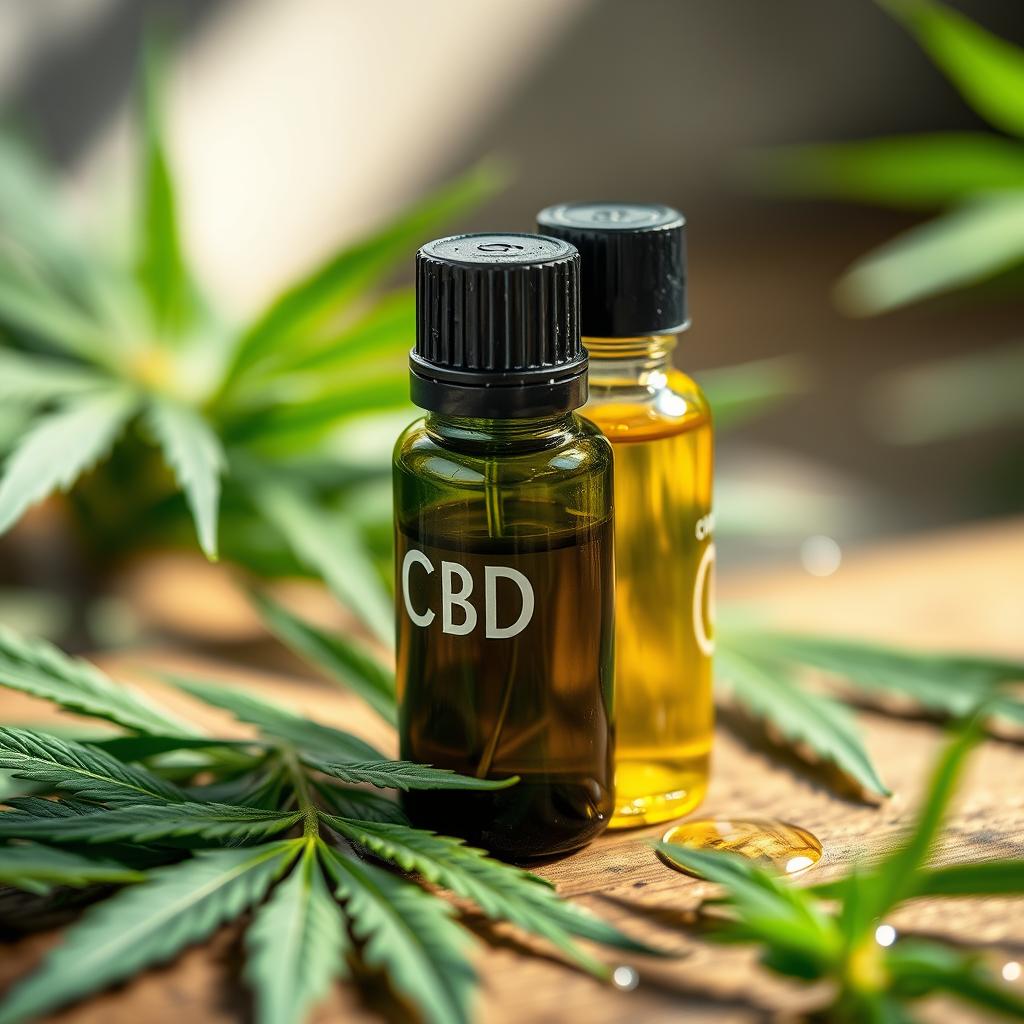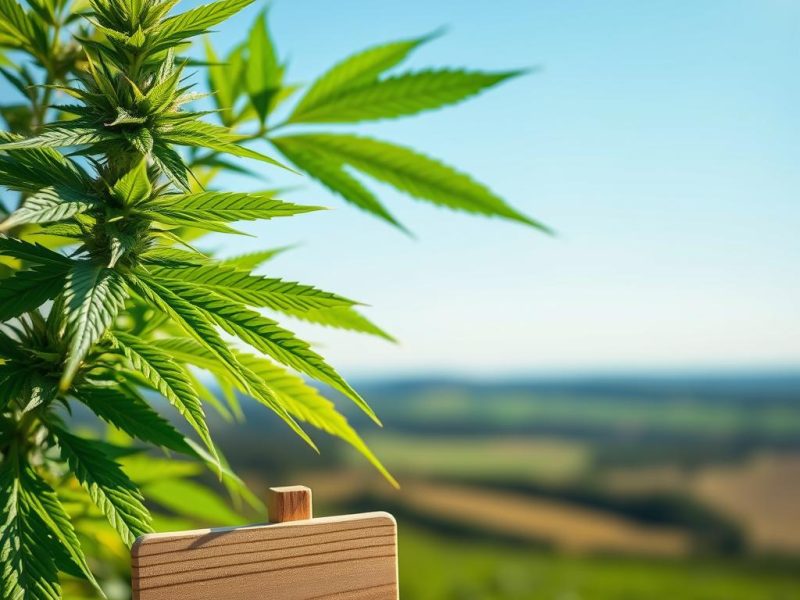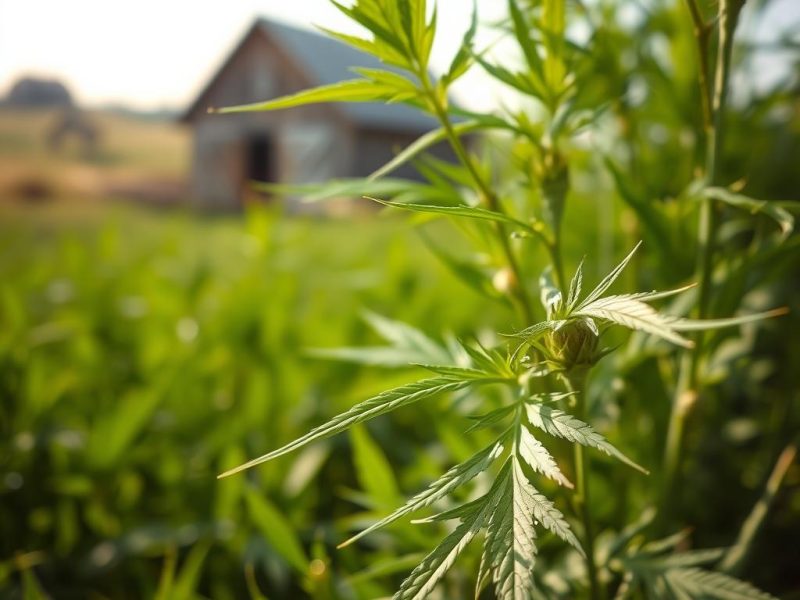Walking through a health store or searching an e-commerce website dealing with wellness related items can be stressful nowadays, that is the case because cannabis based products have become in abundance. There are two words you will often see which are CBD oil and Hemp oil, in many cases both words are used as if they were the same and this tends to cause confusion. It is important to note that although they are derived from the same plant they are two completely different products with different components, uses and advantages. The point of the discussion is the cbd vs hemp oil matter as it is very significant to distinguish what these substances are and how these products should be used for individual specific purposes and needs.
One of the oils is understood to be potentially curative by way of activation of the endocannabinoid system within the body while the other is a rich source of hundreds of healthy oils found in cooking products. Through this state both sides have explained how our must-read comes in: a comprehensive cbd vs hemp oil breakdown to help you understand exactly what means exactly what and in which situations as a user. We will consider their sources, production, legal issues, and first and foremost, their applications so that you will not get it wrong what product to consider personally.
How is CBD oil formed?
CBD oil is an extract made from the flowers and twigs and even stems of the hemp plant. Do note that cannabidiol (or simply CBD for short) is one of the hundreds of other cannabinoids that are present in cannabis plants. While tetrahydrocannabinol (THC), the more popular one, gives the so-called “high,” CBD does not. Its absence in CBD products however does make it appealing to people who are willing to pursue health benefits but do not wish to be intoxicated as is often the case with the use of marijuana.
CBD oil, on the other hand, is formulated to allow mostly cannabidiol and the connection of plant material CBD that can be ingested. It should come as no surprise that CO2 extraction and other methodologies have been developed because more purified products are preferred. The extracts are then mixed with a carrier such as MCT coconut oil or even hemp seed oil as the primary product you purchase contains less CBD oil.
Different Kinds of CBD Oil
In terms of cbd vs hemp oil, one will be able to think of CBD oil as different kinds of products hunting for different components of the plant.
- Full Spectrum CBD: A full pledge of this kind contains all the chemicals present in hemp, such as cannabinoids, terpenes, and flavonoids besides THC. Owing to laws in the United States, the permitted levels of THC in hemp products are less than 0.3%. It is thought that is the reason the ‘entourage effect’ comes into play as all the compounds present in the oil enhance each other.
- Broad Spectrum CBD: this is almost the same as full spectrum, only that it has had all the detectable levels of THC eliminated. As such, this still has the goodness of other cannabinoids and terpenes and as such, forms an excellent alternative for those wishing to achieve the entourage effects without THC.
- CBD Isolate: This is the most potent form of CBD and it is almost pure. In that concentration there are no other plant substances and only pure cannabidiol to a concentration of 99%. This means that it does not contain any active ingredients that could cause an allergic reaction to sensitive individuals. This is the best form of CBD for someone who does not wish to come into contact with any other cannabinoids, particularly THC.
Defining the Term Hemp Oil
Hemp oil should, in fact strictly speaking, be termed hemp seed oil. What its name implies is what it is- an oil derived only from the seeds of the hemp plant. It is similar to very many other oils made from seeds like sunflower oil, pumpkin seed oil, and so forth. The seeds usually have very little or none of the cannabinoid compounds such as CBD. And so, there is no pharmacological relief that one would expect in the best quality CBD hemp oil.
The procedure used for extraction is also a lot less complex, for instance, cold pressing traditional technique used to obtain olive oil can be mentioned here. It allows to maintain the wholesome goodness of the seeds. Hemp seed oil has a surprising number and variety of health merits, though, which are all reserved to dietary use. It is an excellent addition to diets and also useful in the preparation of foods as well as cosmetics. This is the crux of the cbd vs hemp oil issue, the oils are used either for the presence of cannabinoids or for the value of the nutrients present in them.
A General Overview of the Fundamental Differences: CBD vs Hemp Oil
In order to comprehend this point better, let us dissect the key points encapsulated by the aforementioned cbd vs hemp oil debate. With the advancement of advertising, and design and even packaging many individuals fail to see these distinctions. The most important are the origin, content and intent.
| Aspect | Product Based on Cannabidiol | Hemp Oil |
|---|---|---|
| Plant Part/ Source | Hemp flowers, leaves, stalks | Hemp seeds |
| Main Compound | Cannabidiol (CBD) | Fatty acids, Omega, Vitamins, Minerals |
| Amount of Cannabinoids | CBD is highly concentrated in the product; little Tetrahydrocannabinol (THC) present | Neither CBD nor THC is present in the product |
| Usage | Possible health benefits and wellness | For nutrition and dietary purposes as well as cosmetics |
| Extraction Techniques | Supercritical CO2 extraction, alcohol extraction, olive oil extraction | Pressed out without heat |
| Product Appearance/How it is Available | Liquids, tablets, creams, food drops | Edible oil, wellness component, cosmetic raw material |
Potential Advantages and Applications of CBD Oil
CBD oil has become quite popular among people because of the way it interacts with the body’s endocannabinoid system (ECS). This particular system is made of several chemical signaling cell layers responsible for some important functions and processes control such as sleeping, mood alterations, eating, or even recall information. ECS involves chemical receptors found in the brain and throughout the body. ECS supports brain function and CBD may assist with this aspect apart from clinical aspects. Predominantly, the arguments are about between the uses of cbd ingredients’ in the states where recurring headaches occur; that is to say, the uses of cbd vs hemp oil.
Possible Health Benefits
- Pain and Swelling Reduction: A number of users apply CBD oil to cope with chronic pain. Some research on CBD implies that it can alleviate such conditions as arthritis by inhibiting endocannabinoid receptors which are responsible for pain sensation.
- Anxiety and Stress Reduction: This is one of the most well-known utilities of CBD in managing these feelings. Research indicates that the use of CBD helps to increase serotonin levels in the brain. This is an important factor in the cbd vs hemp oil discussion as hemp seed oil has no impact at all.
- Better Sleep: By alleviating factors such as anxiety and pain which are thought to cause one to have poor sleep, CBD may enhance one’s quality of sleep. For others it helps them fall asleep easily and go into the manic stage of sleep fast.
- Protective Effects on the Nerves: Research continues to investigate how cannabidiol can appeal to the interest of neuroprotection as various neurological illnesses like epilepsy are being analyzed.
It’s worth remembering that regardless of the hopeful nature of the current research, only one drug containing CBD is currently available and approved by the FDA, Epidiolex, which is used to manage specific unusually severe types of epileptic syndromes. CBD holds a lot of potential, however, its complete benefits are yet to be explored and one way of doing that is by engaging in clinical placement with it medication and guidance from other doctors.
Advantages and Applications of Hemp Seed Oil
The health benefits of hemp seed oil are purely nutritional. It’s regarded as a superfood because it’s uniquely rich in nutrients. There is no CBD, thus the effects of the oil used do not come from the endocannabinoid system. When one is considering a decision of cbd vs hemp oil it is important to consider what type of health benefits potential consumers are looking for first and foremost.
Packed with Nutrients
- High Concentration of Nutritious Fats/ Oil: The seed oil of the cannabis plant is touted as having among its factors a 3:1 healthy omega 6 to omega 3 ratio in its fats and oils which is said to be good for human health. The fatty acids are important for cognitive wellbeing as well as helping to modulate the inflammatory states within the whole body.
- Pleasant for Skin: Hemp may as well be used topically for their high content of fatty acids that they contain which can help dry skin; reduce inflammation and even aids in treating acne and eczema. Many lotion bars, creams and even soaps contain it in their formulation.
- Benefits the Heart: Hemp seed oil has omega fats which can be useful for heart health by lowering blood pressure and cholesterol.
- Contains Vitamins and Other Nutrients: The seeds also have vitamins and minerals such as Vitamin E, Magnesium, Iron and Zinc.
How to Dissect Product Labels: Why It is Necessary
The primary cause of this entire cbd vs hemp oil issue has everything to do with false advertisement. Some companies may resort to labelling a product containing CBD as “hemp oil” to circumvent the regulatory bans on advertising. Alternatively, some may use the words “cannabis sativa seed oil” to refer to hemp seed oil formulation. Here’s how to avoid purchasing the wrong item in these circumstances.
What a CBD Oil Label Might Read:
- Cannabidiol (CBD) Content: This should indicate the exact amount of CBD in the product e.g. 50mg.
- Spectrum: The packaging must state whether it is a full spectrum or broad spectrum.
- Third Party Lab Testing: Quality USP products should however be accompanied by approval certificates from accredited external laboratories that ascertain the cannabinoid content and also a guarantee of no contaminants. This is regarded as the best method to ascertain contents of the bottle.
What a Hemp Seed Oil Label Might Read:
- Ingredients: The first ingredient should be stated as either ‘hemp seed oil,’ ‘virgin hemp oil,’ or ‘cannabis sativa oil.’
- Nutritional Value: The focus is almost always placed on the content of fats (e.g. omega 3 and omega 6) by the label.
- Cold Pressing: This indicates what kind of extraction was used for the oil; this certain method can preserve the nutrition’s value.
It should be noted, there is a big difference between cbd vs hemp oil.
Be wary of product labels that use terms such as “hemp extract” without any indication of the level of CBD. Most likely, such vagueness is a cause for concern. Sometimes, when it comes to cbd vs hemp oil distinction, only small writings of fine print on the label help.
Legal Regulation And Safety
The law is often unclear when it comes to cannabis based products. But in the US, under the 2018 Farm Bill, producing hemp CBD products is permissible so long as the THC content does not exceed 0.3% at the federal level. Nevertheless, states may have different jurisdictions, hence consulting the respective laws is always prudent. As food products, hemp seed oils, which have no cannabinoids in them, are legal and can be obtained anywhere.
From a safety perspective, both of the oils are generally considered to be safe. Hemp seed oil is just a food product and does not cause any side effects except minor digestive issues only when taken in large quantities. CBD is also a well-liked preparation among individuals and hardly causes discomfort, however, side effects such as fatigue, change in appetite or diarrhea may occur in some people. Unfortunately, CBD can also interact with some medication regimes and thus, it is highly advisable to speak with a physician before starting on this supplement.
Recommendations
Gardeners concern: Topical ointment for sore knees, chronic pain and joint pain relief.
No, of course not. Hemp seed oil does not contain THC which is the substance that causes psychoactivity in cannabis. The cbd vs hemp oil debate always concerns this issue but, neither one of these oils, when obtained in the right way, will cause a high. Any green CBD product would have less than 0.3% of THC in it and that in itself is not enough to trigger a high.
Which oil is more effective when it comes to anxiety?
However, cbd vs hemp oil has been researched due to the possibility of one of them being beneficial in treating anxiety. Cannabinoids are molecules that bind the cannabinoid receptors and it is this system that will make people feel soothing. This is because hemp seed oil is merely a source of essential vitamins and cannot be used for anxiety management.
What is the alternative to cooking with them?
The smoke point of hemp oil is low, and it is preferred for its use with salads, smoothies or sauces, as a finishing oil, rather than frying with it. Cbd oil is usually taken in liquid form into the mouth and placed sublingually or mixed into food or drink after the cooking processes since the cannabinoids may get destroyed to a level which is almost ineffective by the heat of cooking.
Which is worse?
Absolutely, Cbd oil is costly in comparison to the free of charge Hemp seed oil. The high cost is due to the intricate EHC and photochemical extraction process undertaken to obtain the cannabinoid part and the role of the woman in the image would be the hefty environmental one. The most common use of hemp seed oil is for cooking which is as costly as any other specific oil for cooking.
Who wants to locate hemp and CBD oil in a regular grocery store?
The cooking and health food oils purposes of Hemp Seed Oil are attainable in most mainstream supermarkets and grocery stores. On the other hand, CBD is not easily accessible in pharmacies but can be found in specified wellness patient retail outlets, dispensaries, or purchased online. cbd vs hemp oil depends on the geographical location and the specific store, for some cbd oils are not found on the shelves.
Conclusion
The simple cbd vs hemp oil controversial issue comes into play at this point; each item is entirely different with special advantages and purposes. CBD oils are derived from the flowering plants of the hemp plant with lots of cannabidiol in it further helping in enhancing wellness in the human body through the endocannabinoid system. People buy it to help them with stress, pain, and insomnia, among others, it is that’s what.
Alternatively, hemp seed oil serves as a nutritional supplement derived from hemp seeds. It contains no CBD and is jam
packed with omega fats, vitamins, and minerals making it an excellent product for both nutrition and skincare. Knowing these differences and taking the time to read the labels they can purchase the good that is most suited to their health needs and avoid making the prevalent mistakes in relation to such useful products as cbd vs hemp oil, and several others.



